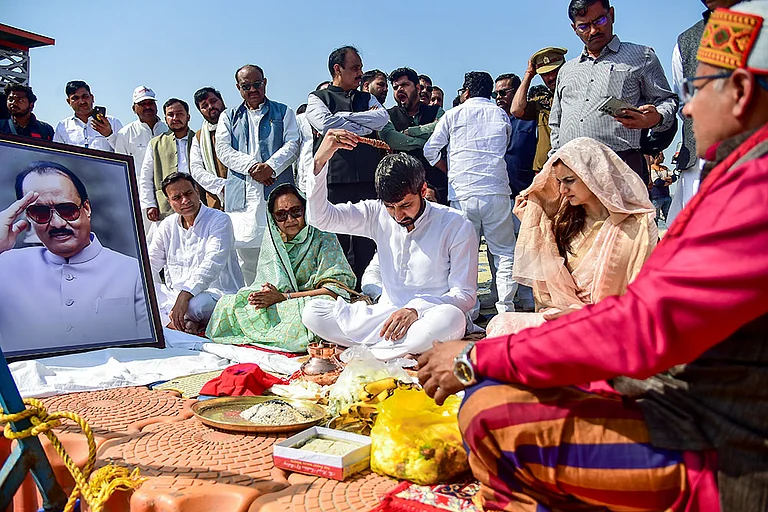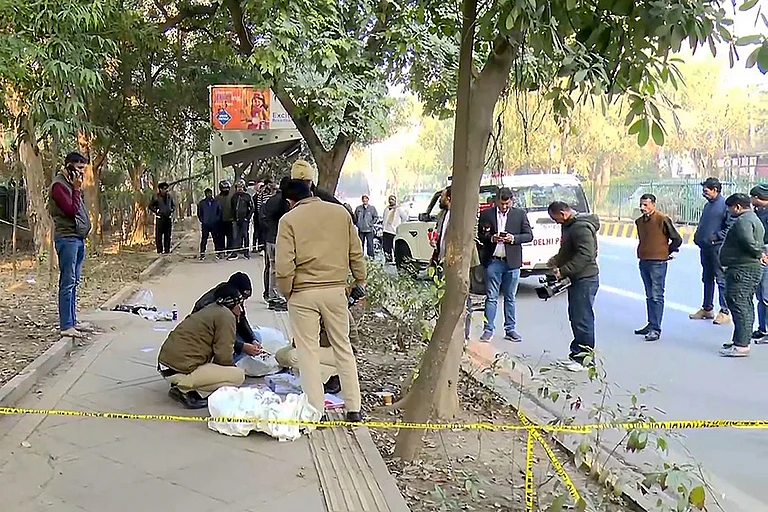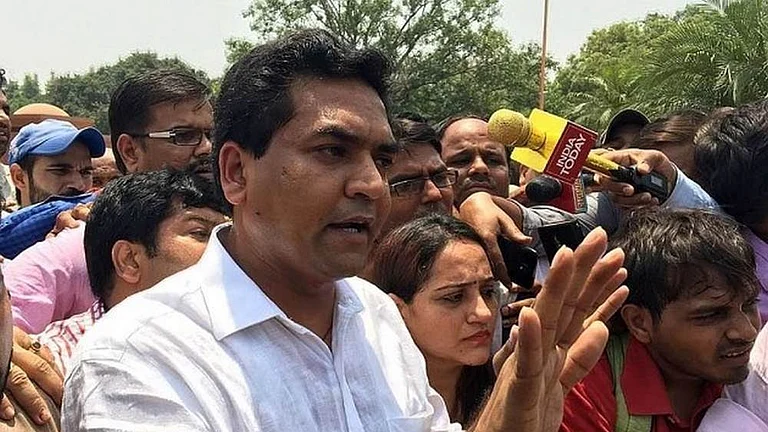In 2013, after running the government for 49 days, Arvind Kejriwal resigned from the post of Delhi Chief Minister. At that point of time, he didn’t have the majority. With only 28 seats, he was unable to introduce the Jan Lokpal Bill--the unique political currency that brought him to the political centre stage. He went back to the electorates and asked for votes. And he got what he wanted. In 2015, he broke all records and got 67 out of 70 seats.
It is 2024. Again, Delhi CM Arvind Kejriwal is about to resign. The legislative party has already named Atishi Singh as their CM. This time the ground is different, yet quite similar. Coming out of jail after almost six months for his alleged role in the scam over the the now-scrapped Delhi liquor policy, Kejriwal declared that he would resign as Chief Minister and would take up the post again only if the electorate clears him of what he calls frivolous accusations. “Your every vote will be counted as a vote for or against my Imandari,” he thundered while addressing party workers at the AAP headquarters. He made it very clear that the case might linger on for decades in the courts, but what matters to him is what the people of Delhi think.
In 2013 and 2024, ethical grounds were his central concern when resigning. But will this ethical step--what some are calling ‘spectacle’ or taking the ‘moral high ground’--help Kejriwal tide over electoral complexities? There are three major aspects that one needs to look at to understand the meaning of his resignation.
Firstly, in Indian politics, this is not the first instance of a Chief Minister or a Cabinet Minister resigning after taking taking moral responsibility for one issue or the other. V P Singh resigned from the Rajiv Gandhi Cabinet in 1987 due to differences over commissions taken by Indian agents in the HDW submarine deal. Singh left the Congress and in 1989 became Prime Minister with support of the BJP and the Left. Here also, the 'moral ground' was prominent.
The case of Bihar Chief Minister Nitish Kumar is closer to Kejriwal's. In 2014, after the poor performance of JD(U) in the Lok Sabha elections, Kumar took the responsibility and resigned from the post of Chief Minister. He deployed his confidante Jiten Ram Manjhi as Chief Minister. Though he was applauded for his decision to give the CM’s chair for the first time to a Mahadalit, within a year the situation became difficult. When Kumar wanted to come back as the CM to lead the party in the Assembly elections, Manjhi didn’t want to leave. However, soon Manjhi had to blink but the party faced an unexpected split.
The recent case of Jharkhand Mukti Morcha can be taken as another example of a CM’s resignation leading to the internal conflict in the party. When Hemant Soren came back from jail and asked Champai Soren to leave the Chief Ministership, it led to disagreement. Within a month, Champai had decided to join the BJP.
Will such a thing happen in AAP when Kejriwal would like to get back his chair? The statement of Atishi after being declared the next CM doesn’t suggest such a possibility. Calling Kejriwal the ‘Rightful CM’, she said that had it not been for him, she would not have even stood as an MLA candidate. However, Champai Soren too had uttered almost similar words when interviewed by Outlook before the fallout. He had said that he was there just to carry forward Hemant’s work.
Secondly, one needs to understand the background of leaders like Kejriwal. Neither does he come from a political family, nor was he part of any large political political party. He spent months among slum dwellers and organised movements for issues ranging from RTI to Lokpal. He didn’t miss making this point while addressing the party workers. He said that he could have led a different life if he wanted to continue as an Income Tax Commissioner but he decided to serve the nation. Evoking his past, he made the point that he is not afraid of reaching out to the electorate.
Political scientist Aditya Nigam pointed out that Kejriwal has been a 'streetfighter' in politics and it is possible that he wants to get back to it. The instances of Kejriwal protesting on the streets even as the CM of Delhi is well known. Another such CM in India is Mamata Banerjee, who also claims the legacy of a political streetfighter and came out on the streets several times even after she became the CM. Will Kejriwal be able to use his time as a non-administrator to cultivate his vote bank in Delhi as well as in other states like Haryana, which is going to polls on October 5?
Thirdly, the question of political ethics comes up whenever such a decision is decoded. Nigam says, “Currently, in India, there is hardly any politician who takes such steps for ethics. To term it as ‘moral high ground’ is judgemental. He took an ethical stance through the resignation after he walked out of jail.” Notably, BJP leaders questioned his decision and asked why he didn’t resign while walking into jail. Kejriwal, during his speech, addressed the question and said, “I didn’t resign not for my greed of retaining chair. Rather, by not resigning I spoilt the plan of the BJP to break our party.” He also appealed to all Opposition Chief Ministers across the country to not resign if they are arrested on frivolous and malevolent charges.
Interestingly Kejriwal’s themes for electoral appeal have changed through the years. In 2015, he went to the electorate on the promise of a corruption-free government. In 2020, he asked them to vote on the basis of his works, and now, in 2024, he is on the honesty plank--his political prerequisite. In 2013, when he was relatively new to politics, there was a common refrain among people that “Kejriwal is so honest that he even runs in ‘Temple Run’ without slippers”. Will he be able to gain back that confidence?



























